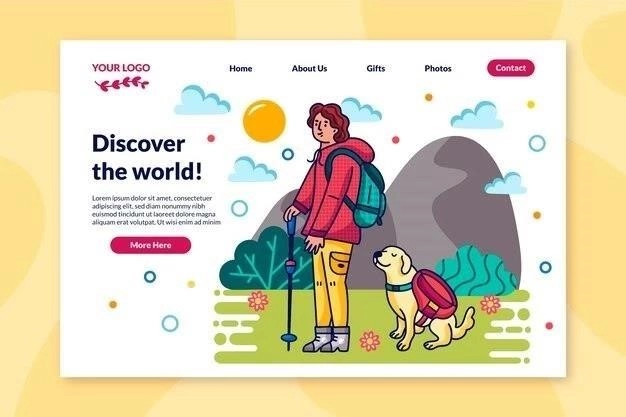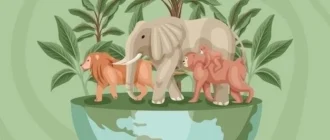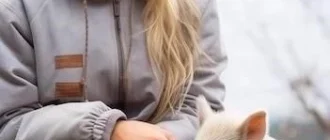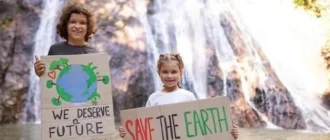As an avid traveler with a deep love for animals, Ive always been fascinated by the idea of animal tourism. Who wouldnt jump at the chance to see exotic creatures in their natural habitat or get up close and personal with majestic creatures like elephants and tigers? However, my recent experiences have made me realize that animal tourism is a complex issue with a darker side thats often hidden from the average tourist.
The Allure of Animal Encounters
My first encounter with animal tourism was at a young age, visiting a local zoo. I was captivated by the animals, but even then, a part of me felt a pang of sadness seeing these creatures confined to enclosures. Years later, I had the opportunity to go on a safari in Africa. Witnessing animals roaming free in their natural environment was exhilarating and fueled my desire to experience more of what animal tourism had to offer.

The Dark Side of Wildlife Tourism
However, my perspective shifted during a trip to Southeast Asia. I was appalled by the conditions in which many animals were kept for the sake of tourist entertainment. I saw elephants chained and forced to carry tourists on their backs, their spirits seemingly broken. I encountered tigers drugged and used as photo props, their majestic presence reduced to a mere spectacle. These experiences left me heartbroken and questioning the ethics of animal tourism.
The Exploitation of Animals for Profit
It became clear that many animal tourism ventures prioritize profit over animal welfare. The demand for up-close encounters and Instagram-worthy photos fuels a lucrative industry that often exploits animals for financial gain. The cruel training methods employed to make wild animals submissive and the cramped, unsanitary conditions theyre often kept in are a far cry from the humane treatment they deserve.
Seeking Out Ethical Alternatives
This experience led me to research and seek out ethical alternatives in animal tourism. I discovered sanctuaries and rescue centers that prioritize animal welfare and conservation. These organizations often rescue animals from abusive situations and provide them with a safe haven.
I volunteered at an elephant sanctuary in Thailand, where I learned about the plight of these gentle giants; The sanctuary rescued elephants from the logging and tourism industries, providing them with a spacious habitat to roam freely and receive proper care. Witnessing their rehabilitation and the bond they shared with their caretakers was a truly heartwarming experience.

Responsible Animal Tourism⁚ A Shared Responsibility
Animal tourism can be a powerful tool for conservation and education, but its our responsibility as tourists to make informed choices. We need to be aware of the potential harm our actions can have on animals and choose experiences that prioritize their well-being.
Here are some tips for ethical animal tourism⁚
- Do your research⁚ Before visiting any animal attraction, research their practices and ensure they align with ethical standards. Look for accreditation from reputable organizations like the Global Federation of Animal Sanctuaries.
- Choose observation over interaction⁚ Opt for experiences that allow you to observe animals in their natural habitat or in spacious, enriching environments. Avoid activities that involve riding, touching, or feeding wild animals.
- Support responsible organizations⁚ Choose to visit sanctuaries, rescue centers, and conservation projects that prioritize animal welfare and contribute to conservation efforts.
- Speak up⁚ If you witness animal cruelty or exploitation, report it to the relevant authorities or animal welfare organizations. Your voice matters.
Animal tourism is a double-edged sword. It has the potential to contribute to conservation efforts and educate the public about the importance of protecting wildlife. However, its crucial to remember that animals are not commodities for our entertainment. By making informed and compassionate choices, we can ensure that our desire to experience the wonders of the animal kingdom doesnt come at the expense of their well-being.
Putting Ethical Tourism into Practice
Armed with this newfound knowledge, I completely changed my approach to animal tourism. I started seeking out sanctuaries and rescue centers that aligned with my values. My travels took me to Costa Rica, a country known for its biodiversity and commitment to conservation.
I visited a sloth sanctuary nestled in the rainforest. Unlike some places that exploit these gentle creatures for selfies, this sanctuary rescued injured and orphaned sloths, providing them with a safe haven to heal and, when possible, reintroduce them into the wild. I observed them from a respectful distance as they moved slowly through the trees, their tranquility a stark contrast to the stressful environments Id seen elsewhere.
Embracing Authentic Connections
Later, in South Africa, I went on a safari with a local guide named Mandla. He was passionate about conservation and emphasized the importance of respecting animals and their space. We observed lions, elephants, and giraffes from afar, allowing them to go about their natural behaviors undisturbed.
Mandla shared stories about the animals and their ecosystem, deepening my appreciation for the delicate balance of nature. It was a far cry from the staged animal encounters Id witnessed in the past; This experience taught me that true connection with animals comes from observation, respect, and a willingness to learn, not from forced interactions.
A Call to Action⁚ Choose Compassion
My journey through the world of animal tourism has been an eye-opening experience. Its shown me the best and worst of humanitys relationship with animals. Ive learned that our choices as tourists have a profound impact on the lives of these creatures.
We cant remain oblivious to the suffering inflicted upon animals for the sake of entertainment and profit. Instead of seeking out the cheapest thrills, lets demand better for animals. Lets choose to support ethical organizations that prioritize their well-being. Lets use our voices and wallets to create a world where animals are respected, not exploited.
Its time to rewrite the narrative of animal tourism. Its time to choose compassion over convenience. The future of wildlife depends on it.
My travels continued to lead me to incredible places, and I made a promise to myself to always prioritize ethical animal encounters. On a trip to Australia, I found myself drawn to the Great Barrier Reef, a place I’d dreamed of visiting since I was a child. I was determined to experience its beauty firsthand, but I was also wary of the impact tourism can have on such fragile ecosystems.
I did extensive research and chose a tour operator that was actively involved in reef conservation. They used boats with minimal environmental impact and educated visitors on responsible snorkeling and diving practices. They even partnered with a marine research center, and a portion of the tour fees went directly towards coral reef restoration projects.
Slipping into the water and being surrounded by such vibrant marine life was breathtaking. I swam alongside graceful sea turtles, spotted a shy reef shark in the distance, and marveled at the intricate formations of coral. Knowing that I was supporting an organization that was actively working to protect this underwater wonderland made the experience even more meaningful.
It wasn’t just about ticking off a bucket list destination; it was about connecting with nature in a way that felt responsible and respectful. I realized that ethical animal tourism extends beyond land mammals and encompasses all creatures, great and small. It’s about considering the impact our actions have on entire ecosystems and supporting those who are working tirelessly to protect them.
My journey taught me that responsible animal tourism is an ongoing process of learning, adapting, and advocating. It’s about challenging the status quo and demanding better for animals around the world. It’s about using our voices to speak up against exploitation and using our choices to support a more compassionate and sustainable future for all living creatures.











Your experience in Southeast Asia mirrors mine. Seeing those majestic creatures reduced to tourist attractions was eye-opening and incredibly disheartening.
Your words resonate deeply. I\
The shift you described in your perspective is something I think many animal lovers go through. It\
The more people who are aware of this issue, the better chance we have of creating positive change.
This is a conversation that needs to happen more. Thank you for sharing your perspective and advocating for ethical animal tourism.
It\
I completely agree with your sentiment. I used to think zoos were educational, but after seeing the cramped conditions some animals were kept in, I felt differently. It\
Your words are powerful and thought-provoking. We need to be more mindful of our impact on animals.
The part about “Instagram-worthy photos” hit home. It\
I went through a similar realization. It\
Your experience resonated with me. I\
Thank you for sharing your journey and for encouraging others to think critically about animal tourism.
I used to think seeing animals in captivity was a way to connect with nature, but your story has made me reconsider.
Your description of the elephants is heartbreaking. No animal deserves to be treated that way.
Thank you for speaking up for the animals. Your voice makes a difference.
I had a similar experience at a wildlife park. It was marketed as a sanctuary, but the animals seemed distressed and poorly cared for.
Your story is a reminder that we need to be responsible tourists and choose experiences that respect animals and their habitats.
Your story is a reminder that we can all make a difference by making informed choices about our travel experiences.